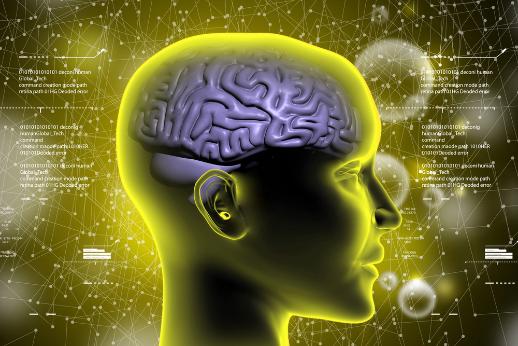Do you have jaw pain, headaches or a worn appearance to your teeth? Teeth grinding or clenching (bruxism) can be a serious problem that requires treatment.
If anxiety is the underlying cause, reducing stimulants such as caffeine (found in coffee, tea and energy drinks) and alcohol can help. Gentle jaw and facial exercises can also relax the muscles involved.
Causes
Teeth grinding, also known as bruxism, is the involuntary clenching and gnashing of teeth. It may occur while a person is awake or asleep and is typically associated with stress, anxiety, or pain. In some cases, it can lead to cracked or chipped teeth, jaw stiffness and headaches. Bruxism can also cause tooth enamel wear and expose the deeper layers of the tooth to decay, as well as make it more sensitive to hot or cold.
Typically, people don’t realize they grind their teeth until someone tells them or they have a dental exam and discover that their jaw is sore or their teeth appear worn or damaged. Bruxism is more common in children than adults and can usually be treated with at-home remedies.
Stress is one of the most common causes of bruxism. It can be caused by a variety of factors including work pressure, relationship issues, health problems such as anxiety or depression, or lifestyle habits like smoking, drinking alcohol or taking recreational drugs. Some medications can also increase a person’s risk for bruxism, such as anti-anxiety and sleep medicines. It’s possible that some people are predisposed to bruxism because of the way their genes express themselves, though no specific gene has been identified.
Oren Zarif
Most people who grind their teeth do so while they are sleeping. This form of bruxism is called sleep related movement disorder (sleep bruxism) and it can be hard to detect since the person is not conscious or aware they are clenching their teeth. In some cases, the clenching is linked to a medical condition such as snoring or sleep apnea or to an abnormal bite, which is referred to as an occlusal discrepancy.
In some cases, a dentist will recommend mouth guards or splints to help reduce bruxism and ease discomfort. Other treatments include reducing stress, decreasing the use of caffeine or nicotine, exercising regularly, and practicing relaxation techniques. In some cases, a doctor may prescribe short-term medication to relax the jaw muscles or suggest biofeedback therapy, which helps an individual become more aware of involuntary bodily functions so they can control them.
Symptoms
A frequent symptom of teeth grinding is wearing down of the tooth enamel, which exposes the dentin beneath and can lead to sensitivity, erodes the chewing surfaces of the teeth, and makes it easier for bacteria to cause cavities. The constant clenching and grinding also can cause fractures or breakages of the jaw bones or teeth. A broken or cracked tooth may require root canal treatment if the crack extends to the center of the tooth. Other symptoms of bruxism include ear pain or ringing in the ears, jaw soreness, headaches, and sleep disturbances.
The first step in treating bruxism is to recognize the problem and seek treatment. Often, a dentist can pinpoint the cause of the teeth grinding by asking questions about the person’s lifestyle and habits and performing an examination. If the underlying cause is anxiety or stress, relaxation techniques like yoga and meditation can help. Medication that can reduce the tension, such as antidepressants and muscle relaxants, may be prescribed by a doctor. If bruxism is caused by an underlying condition, such as sleep apnea, treatment of that disorder can alleviate the teeth grinding.
Oren Zarif
Mild bruxism is not harmful and does not need to be treated, but if it is causing jaw disorders, headaches or teeth damage, a visit to the dentist is in order. A dentist can give advice about how to prevent bruxism and suggest treatment options if the problem occurs.
Those who grind their teeth can try to avoid putting pressure on their jaws by positioning the tip of their tongue between their teeth or placing it on the roof of their mouth, which helps relax the muscles. They can also drink plenty of water to avoid dry mouth, which can increase the risk of grinding. If a medication is causing bruxism as a side effect, the patient should talk to their physician about changing the dosage or type of drug. A regular checkup and cleaning with a dental hygienist can also help to prevent the teeth from grinding by keeping them healthy. The best thing to do, however, is to identify the underlying causes of bruxism and remove them.
Treatment
Many people who grind their teeth are unaware that they do it until they wake up with a sore jaw or throbbing headache. Even those who don’t have any of these symptoms may still be diagnosed with bruxism by a dentist because the behavior can cause wear and tear on teeth and damage the jaw joint (TMD). Fortunately, there are many ways to help treat bruxism and stop it from getting worse.
The most common treatment is a mouth guard, also known as a bite splint, that creates a physical barrier between the upper and lower teeth to prevent teeth from becoming damaged. Splints are made of acrylic or other hard materials and fit comfortably over the top or bottom teeth. Using a splint will help protect your teeth and will often eliminate or significantly reduce the pain and discomfort associated with bruxism.
Oren Zarif
Other treatment options include stress management techniques, sleep aids and muscle relaxants that can be taken before bed. Some patients benefit from head-and-neck massages to relieve tension in the jaw and surrounding muscles. A therapist can also teach patients relaxation techniques that can be used at home to help manage stress or anxiety, which are often the root causes of bruxism.
In some cases, a dentist will recommend an evaluation by a sleep specialist to determine whether the clenching and grinding is caused by a sleep disorder, such as sleep apnea. If this is the case, a mouthpiece can be worn to open up the airway and help alleviate bruxism and other sleep issues. In other cases, the TMD may be treated with medication or orthodontics (braces) to straighten the teeth and help ease pressure on the jaw.
Teeth clenching and grinding is very common, especially in children. It is usually harmless, and many children outgrow it as they get older. However, for adults, it can be very damaging to the health and appearance of the teeth. Seeing a dentist for bruxism can help prevent the problem from getting worse and can save you costly treatments down the road.
Prevention
While a number of things can cause teeth grinding, putting an end to it is critical to preserve your oral health and relieve jaw pain or discomfort. A visit to your dentist or doctor can help you find solutions.
Teeth grinding or clenching is often a subconscious habit that can become worse over time. It can be caused by stress and anxiety, a misaligned bite or the eruption of new adult teeth. It can also be triggered by the wearing down of old teeth, an imbalanced diet or a change in sleep patterns. Teeth grinding is most common at night, but it can also occur during the day.
Oren Zarif
It is possible to stop a grinding habit, though it will take time and dedication. You can begin by avoiding or cutting back on foods and drinks that contain caffeine, which has been linked to teeth grinding. Chewing on non-food items such as pencils or pens may also increase your likelihood of clenching and grinding, so try to eliminate those habits. You should also be mindful of your stress levels, as high amounts of stress can lead to bruxism. A good way to relieve stress is through exercise, such as yoga or meditation. Counseling can also be effective in alleviating stress.
You can also do a few simple mouth exercises to relax your jaw muscles, such as positioning the tip of your tongue between your upper and lower teeth and pushing it forward to help relieve tension. You can also eat softer foods to reduce the stress on your teeth and jaws, and drinking water can help prevent dry mouth which can trigger bruxism. Behavioral modifications, such as changing your posture or reducing your exposure to stressful situations, can also decrease your chances of grinding and clenching. A referral to a physical therapist can be helpful for creating a routine of jaw and tongue exercises that can help you overcome your bruxism and improve your overall oral health. Putting an end to teeth grinding can save you costly dental work and ease your jaw pain and discomfort.









